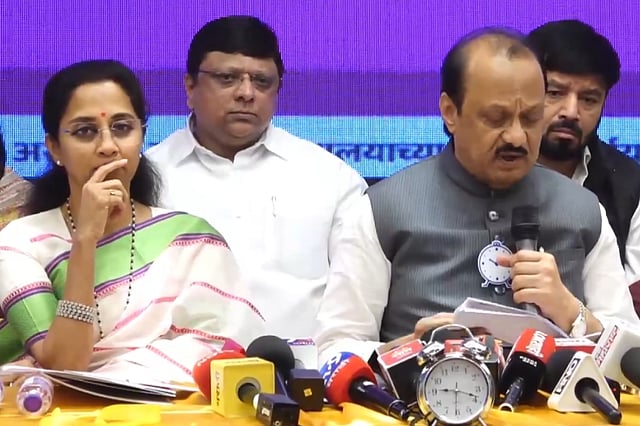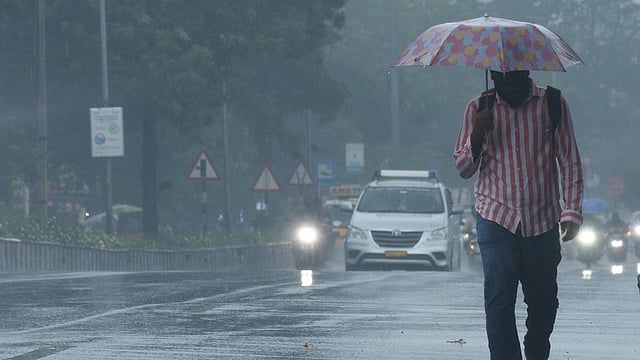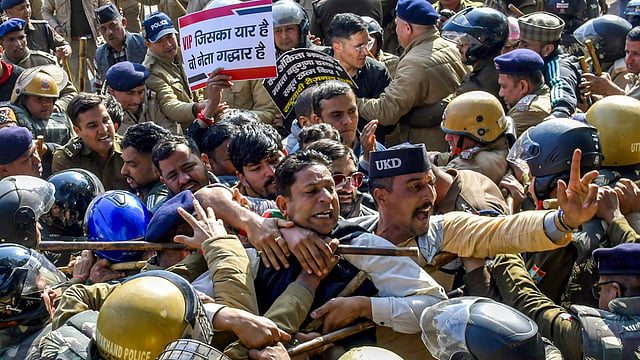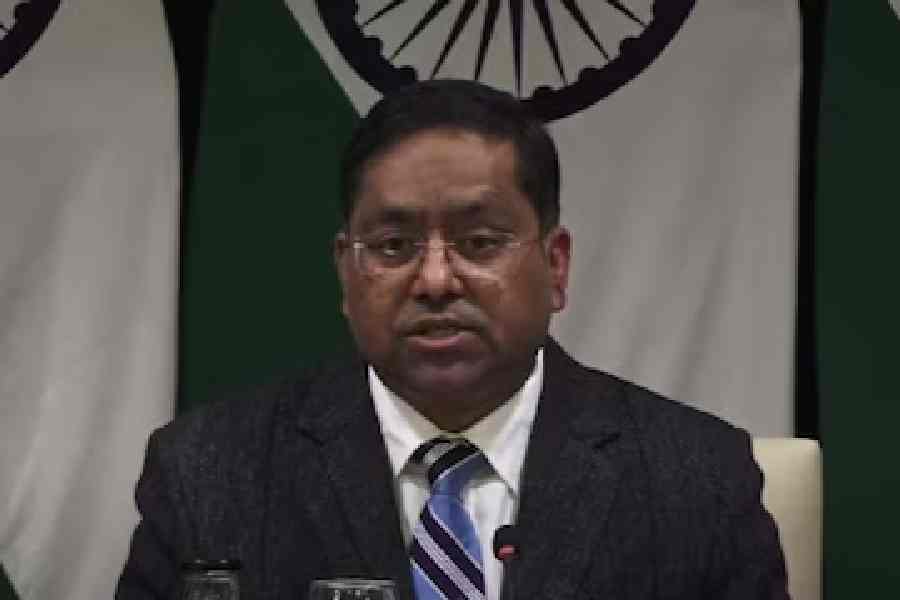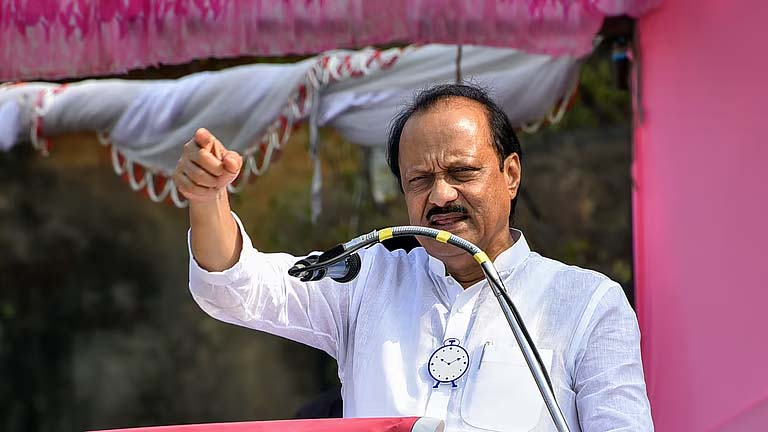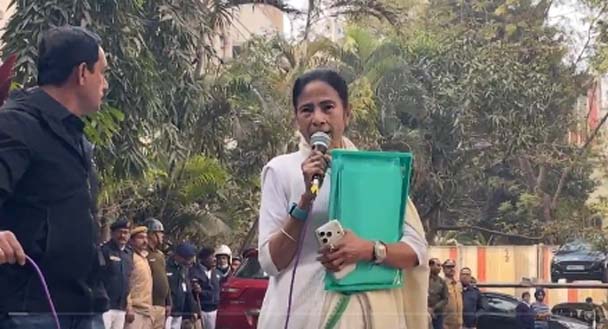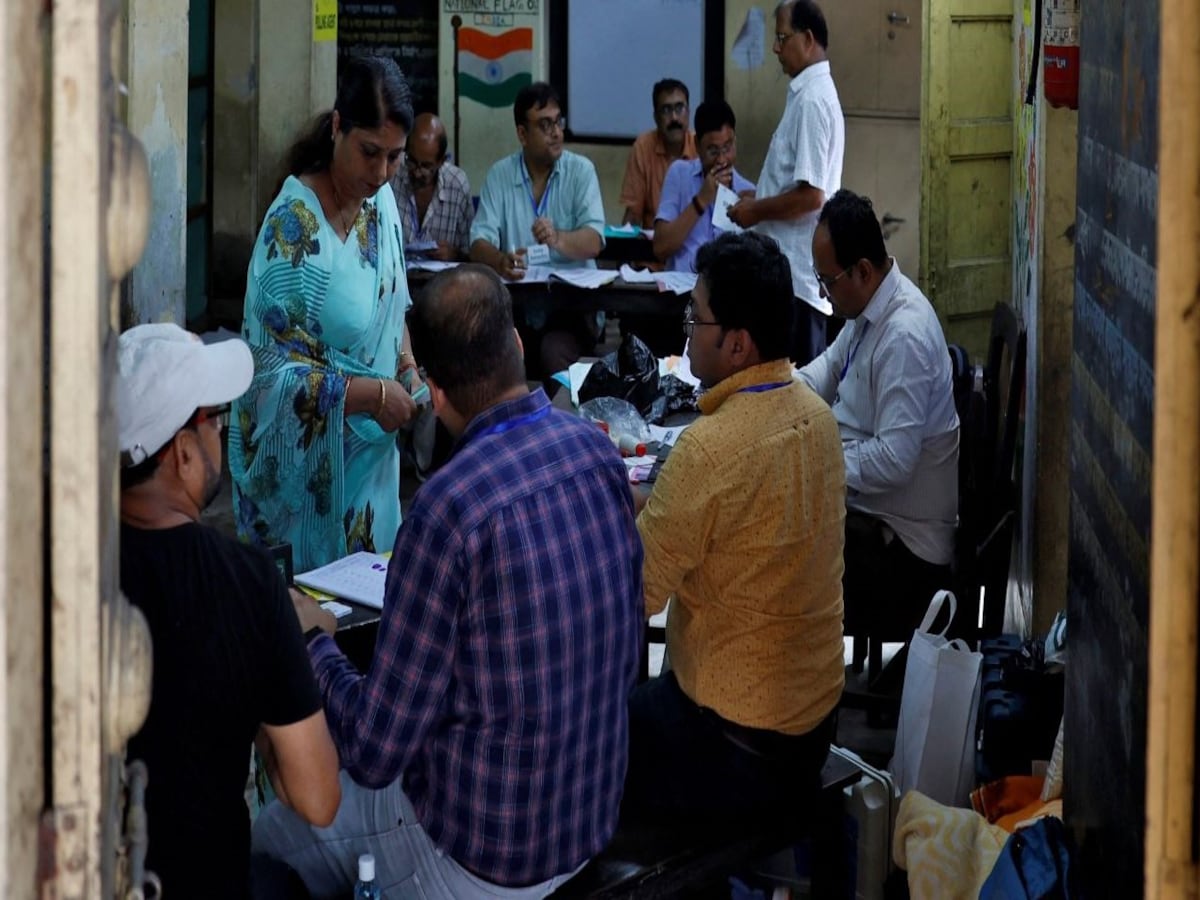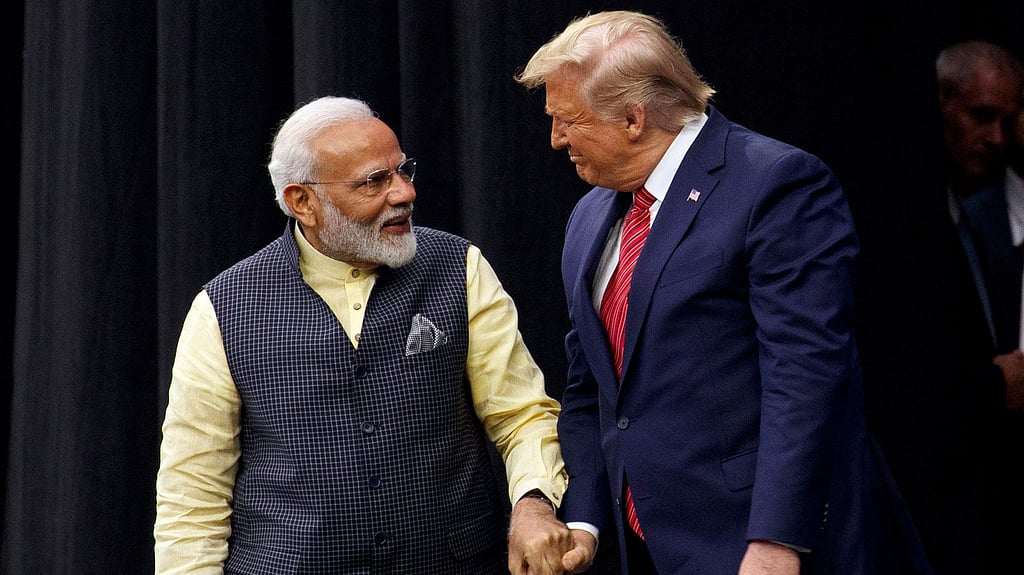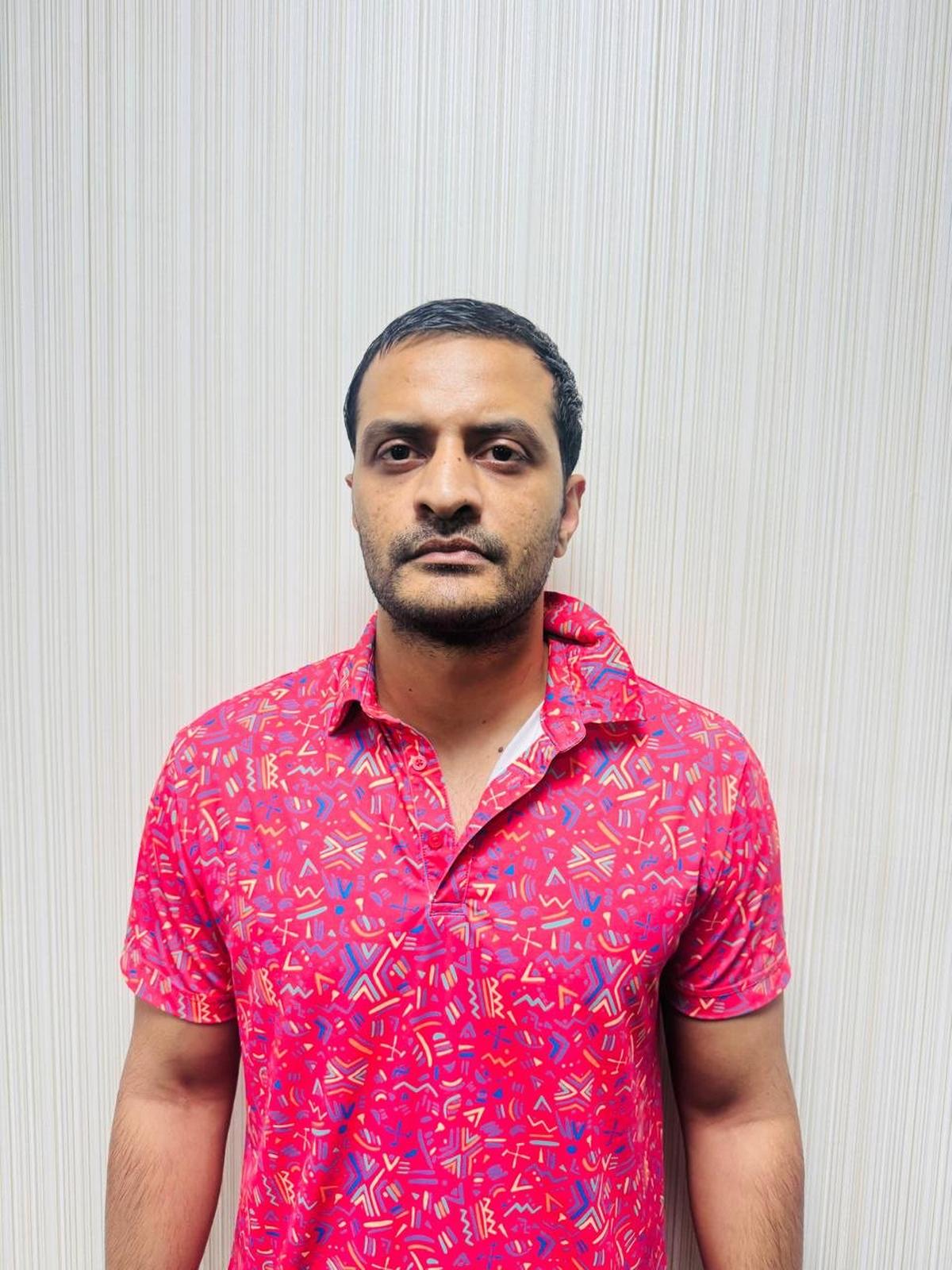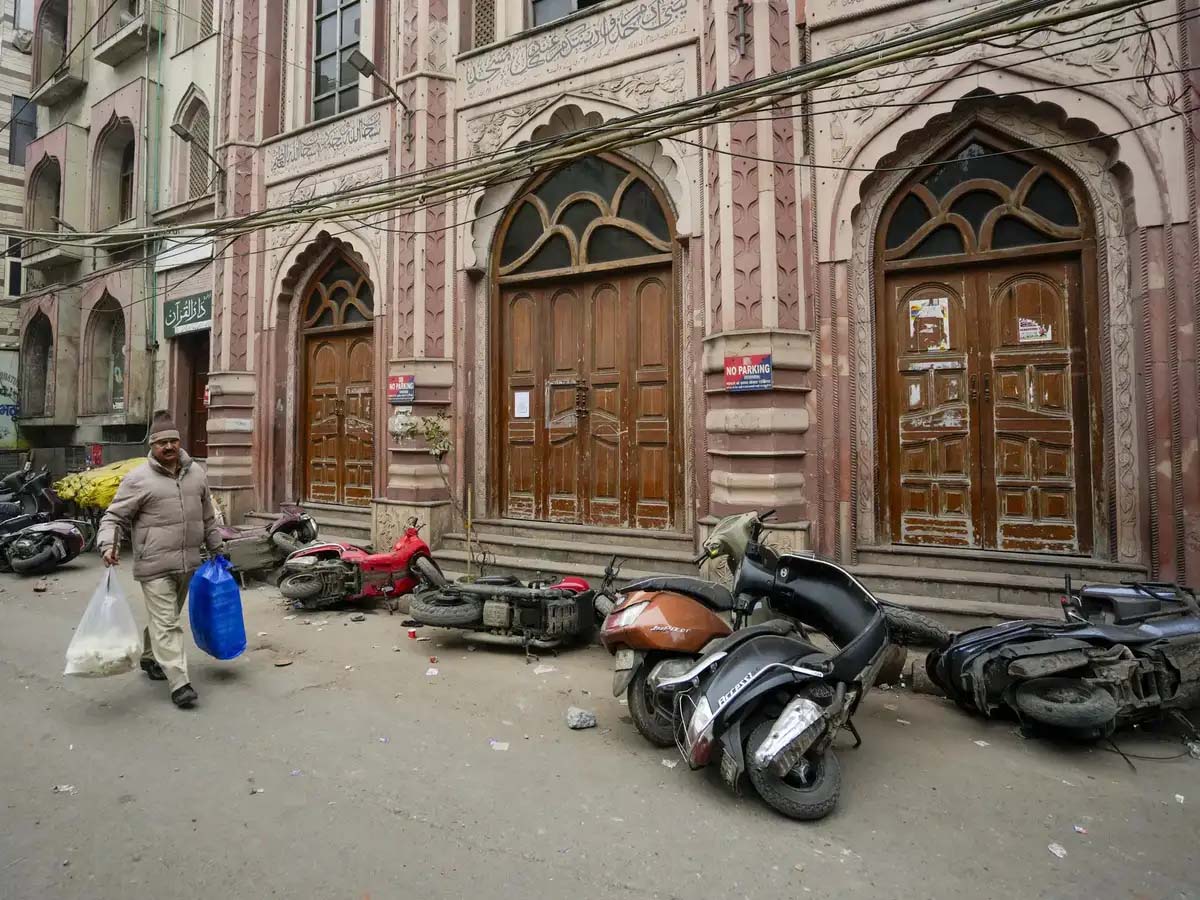BIG NEWS
- Pune civic polls: NCP factions release joint manifesto; Ajit Pawar and Sule share dais
- Deep depression over Bay of Bengal to weaken, cross north Sri Lanka coast on Saturday
- Forex reserves drop by $9.80 bn to $686.80 bn
- Uttarakhand CM recommends CBI inquiry into 2022 Ankita Bhandari murder case
- India rejects Lutnick claim on stalled US trade deal, flags concern over Minneapolis shooting
- Parties abandoning core principles, poaching leaders using money and fear: Ajit Pawar's swipe at BJP
- Ankita Bhandari's parents demand CBI probe into daughter's murder
- ED tried to seize TMC’s internal data during raid at I-PAC chief’s house, alleges Mamata
- SIR: Lucknow, Ghaziabad top in delisted voters; fewer deletions in Muslim-dominated pockets
- UP: 2.89 crore voters removed from draft rolls; marks highest number of deletions in country after initial phase of SIR
India's first cable-stayed rail bridge on Anji river in J-K nears completion; deck to be ready by May


Public Lokpal
March 26, 2023
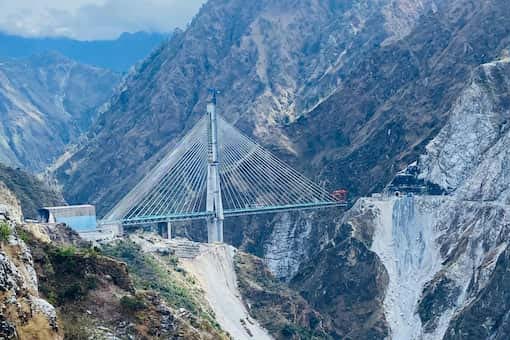

India's first cable-stayed rail bridge on Anji river in J-K nears completion; deck to be ready by May
Jammu : The first cable-stayed railway bridge of India is nearing completion and the deck of the bridge is expected to be ready by May this year on the Anji river in Jammu and Kashmir, Northern Railway officials said.
Once ready, trains will run at a speed of 100 kilometres per hour on the bridge being constructed around 80 kilometres away from Jammu, they said.
Anji bridge between Katra and Reasi stations falls in the Reasi district of the Union Territory of Jammu and Kashmir.
The upcoming structure is part of the ambitious Udhampur-Srinagar-Baramulla-Rail Link (USBRL) project that railway minister Ashwini Vaishnav had announced would be completed next year.
According to officials, the last deck portion of Anji bridge which is designed to withstand wind speeds of 213 kilometres per hour is expected to be completed in May this year as six more segments of the bridge are yet to be launched.
“We have already completed 41 out of 47 segments. We are hopeful that the remaining ones would be completed by April-end or in the first week of May,” the official said.
He said the central span of the cable-stayed bridge is 290 metres and only a 52.5-metre portion remains to be completed.
“The speed of trains will be 100 kmph on this bridge which is the speed for the entire project. However, the trains will be stopped if the wind speed goes beyond 90 kmph,” the senior official said.
Currently, trains operate between Udhampur to Katra section. The project work on the 111-km Katra to Banihal line is currently underway and 52 km of this section including the bridges on Anji and Chenab are being built by Maharashtra-headquartered Konkan Railway. Banihal and Baramulla are also connected by trains.
Once complete, the USBRL project will connect the Kashmir Valley to the national rail network.
Anji bridge is an “asymmetrical” bridge erected on a single pylon and it has tunnels on both ends. A tunnel on the Katra end is 5 km in length while another on the Kashmir end is 3 km in length. A track is laid in both tunnels, according to officials.
The cable-stayed portion of Anji bridge is 472.25 metres while the total length of the bridge is 725.5 metres, which is divided into four parts including an embankment, officials said.
The deck level of the 193-metre tall bridge from the foundation is 51 meters, while the invested Y-shaped pylon above the deck level is 142 meters, the officials said, adding that the bridge work started in 2017.
However, the main cable-stayed bridge work started in April 2018, after the completion of the approach portion, an official said.
The official said the bridge has a codal life (normal average life of machines, equipment, infrastructure calculated as per working shift) of 120 years and it will be able to bear the explosion of 40-kg of explosive material. The bridge will also have an integrated monitoring system with numerous sensors installed at various locations.
“Site-specific earthquake parameters studies were carried out by the Department of Earthquake Engineering, Indian Institute of Technology, Roorkee, to define the seismo-tectonic framework for the region,” the officer said.
According to railway officials, the bridge is located in the young-fold mountains of the Himalayas having extremely complex, fragile and daunting geological features in the form of faults, folds and thrusts.
Besides seismic proneness of the region, detailed site-specific investigations were carried out by IIT, Roorkee and IIT, Delhi, they added.
PTI
